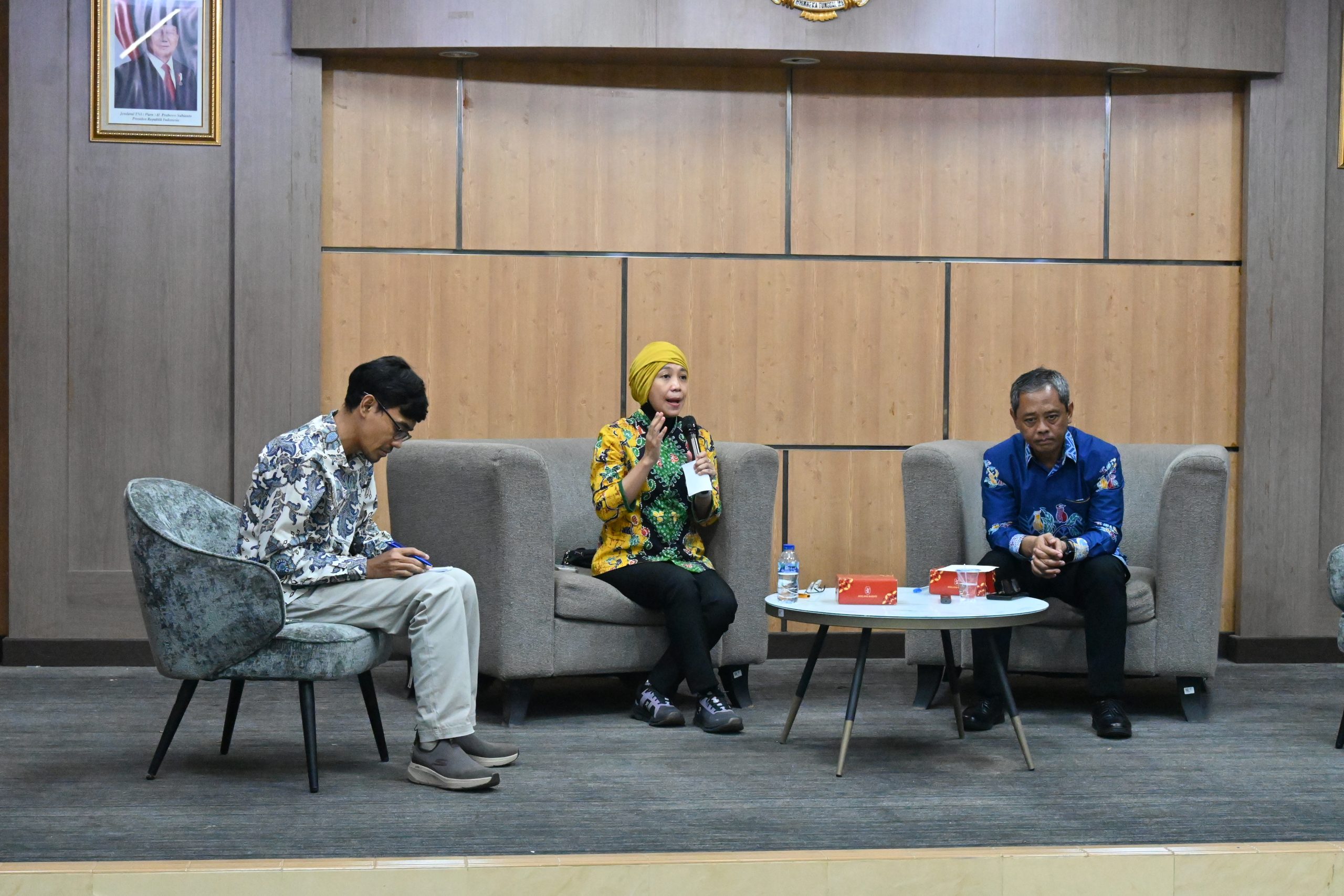The Faculty of Public Health (FPH) Universitas Indonesia (UI), in collaboration with Human Factors Indonesia (HFI), organized a public lecture titled “Human Factors: Concept and Practice” on Friday, May 16, 2025. Held at the Auditorium of Building G, FPH UI, the event served as a cross-sector dialogue platform exploring the crucial role of human factors in building healthy, safe, and sustainable work systems. Attendees included undergraduate and postgraduate students of FPH UI, FPH alumni, and members of HFI. The session was moderated by Dr. Mufti Wirawan, S.Psi., M.K.K.K., a lecturer in the Department of Occupational Safety and Health (OSH) at FPH UI and Secretary of HFI.
In his opening remarks, Prof. dr. Mondastri Korib Sudaryo, M.S., D.Sc., Dean of FPH UI, emphasized the importance of human factors in ensuring that workers remain healthy and safe, particularly in high-risk industries. “Designing work systems that consider human aspects is key to improving occupational safety. This aligns with modern safety approaches that avoid blaming individuals and instead view the system holistically,” said Prof. Mondastri. He also expressed his hope that the lecture would broaden students’ perspectives on the significance of human factors in the workplace.
Capt. Nurcahyo Utomo, Dipl.TSI., Chair of Human Factors Indonesia, also delivered remarks and introduced HFI as a collaborative, cross-disciplinary community. HFI brings together practitioners and experts from various sectors, including health, mining, oil and gas, shipping, and aviation. “Our goal is to apply human factors principles to enhance safety, efficiency, and performance across industries,” explained Capt. Nurcahyo. He expressed appreciation for the collaboration with FPH UI and hopes for its continuation in advancing research and education on human factors in Indonesia.
The first lecture was delivered by Drg. Baiduri Widanarko, M.K.K.K., Ph.D., Chair of the OSH Department at FPH UI, titled “Beyond Technology: Human Factors in High Risk Industries.” Dr. Baiduri emphasized that workplace safety cannot rely on technology alone but also requires interventions in technical, systemic, and cultural aspects.
From a technical standpoint, this includes engineering design, work equipment, and adherence to safety standards. From a systems perspective, it is vital to integrate HSE into management processes through certification, competency development, and risk assessment. Culturally, attention must be given to behavior, leadership, accountability, and work attitudes that embed Health, Safety, and Environment (HSE) as core values and even as a profit center.
Dr. Baiduri also addressed modern challenges such as fatigue, stress, work overload, and complacency. She noted that sleep disorders, prolonged overtime, and lifestyle factors like smoking affect work endurance and productivity. Furthermore, she highlighted a global shift in thinking: the complexity of modern challenges demands a systems thinking approach, in which the human factors discipline plays a strategic role.
“Human factors is not just about humans in the system, it’s about designing systems that are humane. When we think in systems, we build sustainable health and safety,” concluded Dr. Baiduri.
This message was echoed in the second session by Capt. Nurcahyo Utomo, Dipl.TSI, who presented “Human Factors Application in Aviation Industry.” He invited participants to explore how human factors principles are concretely applied in aviation—one of the most safety-critical and precision-driven industries.
He explained that Human Factors Indonesia (HFI) envisions itself as a competent and trusted professional organization in the field of human factors that delivers tangible benefits to society. Its mission includes applying human factors science across industries, developing applied research, and promoting human factors as a recognized national profession. Capt. Nurcahyo also outlined the evolution of safety thinking in industry, especially aviation: from the technology agent era in the 1950s, to the human factors age in the 1970s, the organization age in the 1990s, and the current system-wide era of the 2010s. This evolution underscores that safety is no longer just the responsibility of individuals or technology, but the result of complex interactions across the entire system.
A key point presented was the role of the International Civil Aviation Organization (ICAO) in setting global aviation safety standards. Although not a regulatory body, ICAO issues SARPs (Standards and Recommended Practices) in the form of Annexes, along with various circulars and documents that serve as vital references for member states. The core principle is that accident investigations are not about assigning blame, but about preventing future incidents.
“Safety must remain the focus,” stressed Capt. Nurcahyo. Any identified safety issue must be thoroughly considered in decision-making and system design, especially in high-risk industries like aviation. The combination of academic insight and real-world practice shared by the speakers demonstrated that occupational safety and health is not merely a matter of technical procedure—it is about designing systems that understand and respect human limitations and potential. (DFD)

